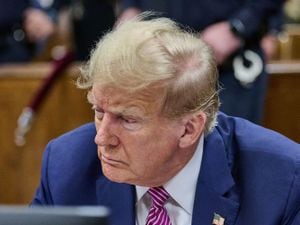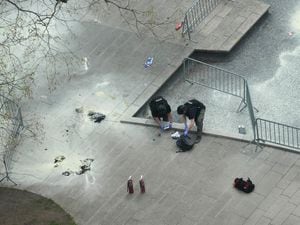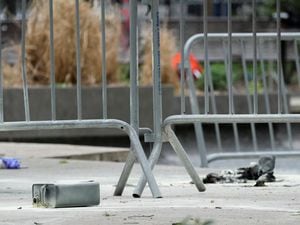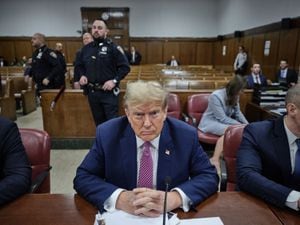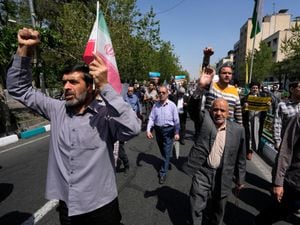Top Iran official warns against protests amid serious unrest
Thousands of Iranians have taken to the streets over the last two weeks to protest against the death of 22-year-old Mahsa Amini.
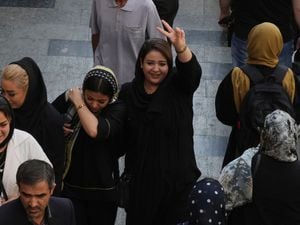
Iran’s parliamentary speaker has warned that protests over the death of a young woman in police custody could destabilise the country and urged security forces to deal harshly with those he claimed endangered public order, as countrywide unrest entered its third week.
Scattered anti-government protests appeared to break out in Tehran and running clashes with security forces in other towns, social media reports showed on Sunday, even as the government has moved to block, partly or entirely, internet connectivity in Iran.
Mohammad Bagher Qalibaf told lawmakers that unlike the current protests, which he said aimed to topple the government, previous demonstrations by teachers and retirees over pay were aimed at reforms, according to the legislative body’s website.
“The important point of the (past) protests was that they were reform-seeking and not aimed at overthrowing” the system, Mr Qalibaf said.
“I ask all who have any (reasons to) protest not to allow their protest to turn into destabilising and toppling” of institutions.
Thousands of Iranians have taken to the streets over the last two weeks to protest against the death of Mahsa Amini, a 22-year-old woman who had been detained by Iran’s morality police in the capital Tehran for allegedly not adhering to the country’s strict Islamic dress code.
Protesters have vented their anger over the treatment of women and wider repression in the Islamic Republic.
The nationwide demonstrations rapidly escalated into calls for the overthrow of the clerical establishment that has ruled Iran since its 1979 Islamic revolution.
Iranian state TV has reported that at least 41 protesters and police have been killed since the demonstrations began on September 17.

An Associated Press count of official statements by authorities tallied at least 14 dead, with more than 1,500 demonstrators arrested.
Mr Qalibaf, the parliamentary speaker, is a former influential commander in the paramilitary Islamic Revolutionary Guard.
Along with the president and the head of the judiciary, he is one of three ranking officials who deal with all important issues of the nation.
The three meet regularly and sometimes meet with Supreme Leader Ayatollah Ali Khamenei, who has the final say on all state matters.
Mr Qalibaf said he believed many of those taking part in recent protests had no intention of seeking to overthrow the government in the beginning and claimed foreign-based opposition groups were fomenting protests aimed at tearing down the system.
Iranian authorities have not presented evidence for their allegations of foreign involvement in the protests.
“Creating chaos in the streets will weaken social integrity, jeopardising the economy while increasing pressure and sanctions by the enemy,” he said, referring to longstanding crippling US sanctions on Iran.
Mr Qalibaf promised to “amend the structures and methods of the morality police” to prevent a recurrence of what happened to Ms Amini.
The young woman died while in the custody of the morality police. Her family alleged she was beaten, while officials claim she died of a heart attack.
His remarks came after a closed meeting of parliament and a brief rally by lawmakers to voice support for Mr Khamenei and the police, chanting “death to hypocrites”, a reference to Iranian opposition groups.

